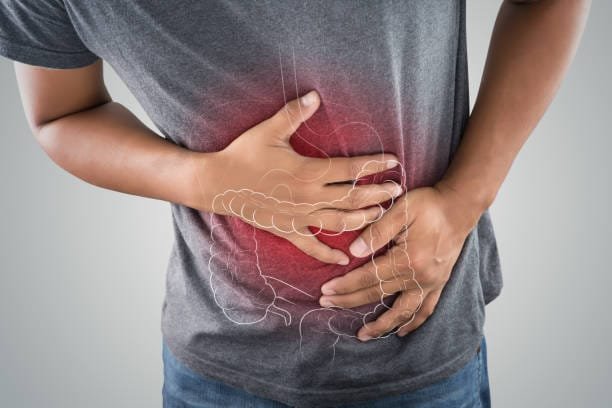Introduction

Indigestion, otherwise known as dyspepsia, often tends to be a gastrointestinal condition related to uncomfortable pain or discomfort in the upper abdomen. In fact, this might be an ongoing complaint for many, deteriorating the quality of life and driving them to the doctor’s chamber.
It’s indigestion—a name applied to a collection of symptoms that cause discomfort in the upper tract. Indeed, it is not sickness but more a collection of symptoms possibly behind some problem in the alimentary canal. Indigestion symptoms differ from one to another, but usually, one of the symptoms of indigestion might be bloating, feeling nauseous or full, or experiencing mild to severe discomfort in the upper abdomen region. While indigestion is not usually considered a serious condition, chronic indigestion can be uncomfortable and disrupt daily activity.
Causes of Indigestion
Indigestion can be caused by a variety of factors, including dietary patterns, lifestyle habits, or underlying medical conditions. Some common causes include:
Dietary Factors: Food intake of big portion-sized meals, food rich in fats, spicy food, and other acidic foods irritate the stomach lining and cause indigestion. Overeating or rapid eating increases the risk since it places additional workload on the digestive system.
Lifestyle Factors: Smoking, alcohol abuse, and stress also trigger indigestion. All these habits increase acid secretion in the stomach with irritation to the stomach lining, thus causing discomfort.
Gastroesophageal reflux disease (GERD): GERD is a medical condition in which gastro-intestinal acid recurs in the esophagus, causing heartburn and indigestion. If left untreated, it might cause chronic indigestion, among other symptoms.
Medications: Certain medications, among them pain-relieving drugs, NSAIDs, antibiotics, and some drugs that manage diabetes might lead to inflammation in the stomach and indigestion.
Infection: There is a possibility of infection by a bacterium called Helicobacter pylori that invades the stomach lining and accounts for the main cause of stomach ulcers. Symptoms of indigestion may also arise.
Other Medical Conditions: Factors that lead to indigestion include peptic ulcers, pancreatitis, gallstones, and irritable bowel syndrome (IBS). These conditions disrupt the normal process of digestion, which bothers the digestive system.
Side Effects of Indigestion
While indigestion itself is not fatal, it can cause a range of other undesirable side effects that can easily affect the quality of life one leads. Among its side effects, ranging include the following:
Gas and Bloating: The trapped gas in the digestive system gives a bloated feeling in the body. This is hardly comfortable as well as embarrassing in public settings.
Heart burn. Most people who have suffered from indigestion characterize it as a burning feeling in their chests resulting from acid reflux into the esophagus. Pain and discomfort in the chest take place due to the irritating acid flowing from the stomach into the esophagus.
Nausea and Vomiting: After suffering from persistent indigestion, nausea often results, sometimes with vomiting. This can disrupt normal living, making it hard to diet healthily.
Loss of appetite: The chronic discomfort with indigestion may make one lose his or her appetite because he or she will end up avoiding food to avoid provoking more symptoms. This may lead to unintentional weight loss.
Abdominal Pain: Indigestion causes pain in the upper abdomen. This can be as minor discomfort or as severe as sharp, crampy pain necessitating medical attention.
Indigestion is said to worsen at night, especially if one has taken food and then lies down. Thus, sleep cycle and general well-being would be affected.
Medical Treatment of Indigestion

The treatment of indigestion depends on its cause and severity. Mild instances may heal independently, but more chronic or recurrent cases will always seek medical evaluation and treatment.
Lifestyle Changes: Since lifestyle habits change would easily cure the symptoms completely. One can ensure consuming smaller meals and avoiding spicy or fatty foods, not lying down immediately after meals. Alcohol intake should be decreased, or smoking should be stopped. The increase in stress should be dealt with by relaxation techniques or the regular exercise of stress.
Over the counter (OTC) Drugs Over-the-counter drugs like antacids neutralize stomach acid and hence provide quick relief. H2-receptor antagonists and proton pump inhibitors, which suppress the production of acids, are also employed and quite effective in alleviating the symptoms, but their prolonged administration needs to be monitored by a doctor.
Prescription Medications Patients with chronic indigestion or GERD should receive prescription medications. They prescribe PPIs or H2RAs as long-term treatment, and prokinetics enhance the motility of the gastrointestinal tract, allowing it to digest food more easily.
Treating underlying conditions. If the indigestion is caused by an underlying disease, like GERD, peptic ulcer, or Helicobacter pylori infection, that must be treated. For example, a patient who’s infected with H. pylori will take antibiotics; somebody suffering from an ulcer may be put on medication like PPIs.
Alternatives. Alternative remedies can be quite helpful for some patients, such as a tea from ginger, peppermint, and other herbs. However, alternative remedies should always be discussed with a healthcare provider before use in patients because some herbs may lead to drug interactions or even worsen the symptoms. Surgery Surgery is very seldom indicated when the indigestion is associated with structural anomalies of the digestive tract. This is usually after conservative interventions fail.
Prevention. The best strategy for handling indigestion would be prevention. Key features of such prevention include eating with awareness, thorough chewing of food, and avoiding large, heavy meals. Furthermore, regular exercise and losing unnecessary weight can contribute to digestive health. Finally, stress management in the form of meditation or yoga can reduce the level of stress-induced indigestion.
When to See a doctor
While some indigestion is common, when symptoms recur or are particularly potent, help is not sought out quickly. A doctor should be sought if symptoms have continued over two weeks or especially concerning signs have arisen like weight loss, food seems stuck in the throat, or there is blood in the vomit or stool. All these could be symptoms of a more serious underlying condition that might need medical treatment.
Conclusion:

Indigestion is a condition that may have a vast array of causes and symptoms with a wide range of treatments. Many patients have successfully alleviated their symptoms of indigestion and gone on to live better by knowing what triggers them and adjusting their lifestyle accordingly.
For those people experiencing the condition persistently, one has to seek medical advice on proper treatment to tackle the problem at its roots and prevent further complications. With the right approach, an individual can find relief from indigestion and have a healthy digestive system.



